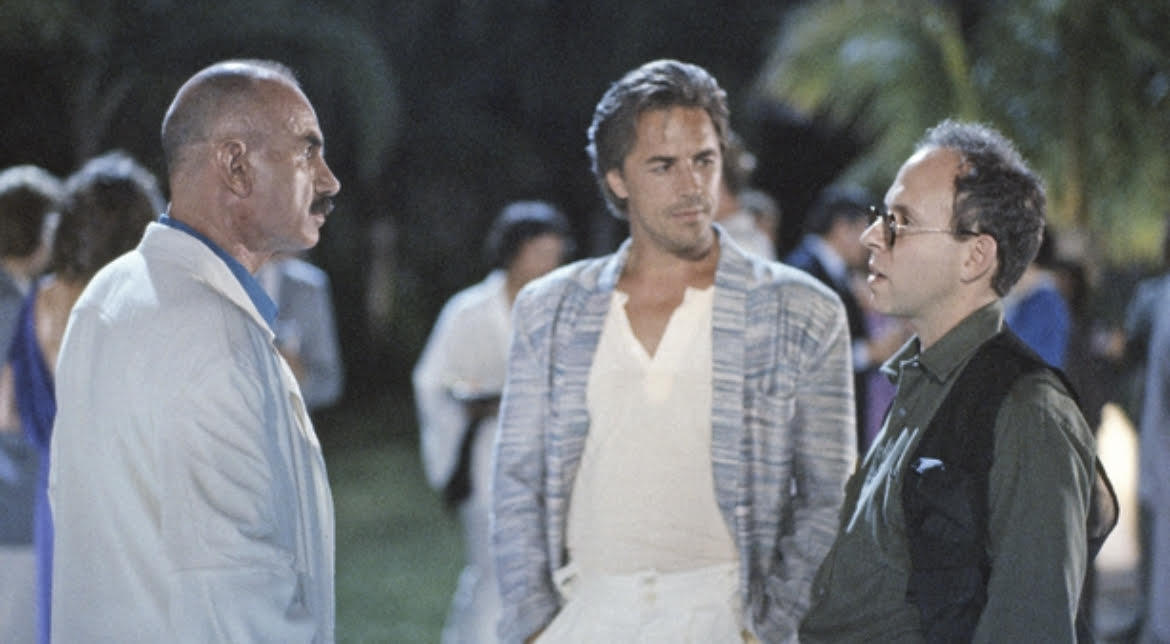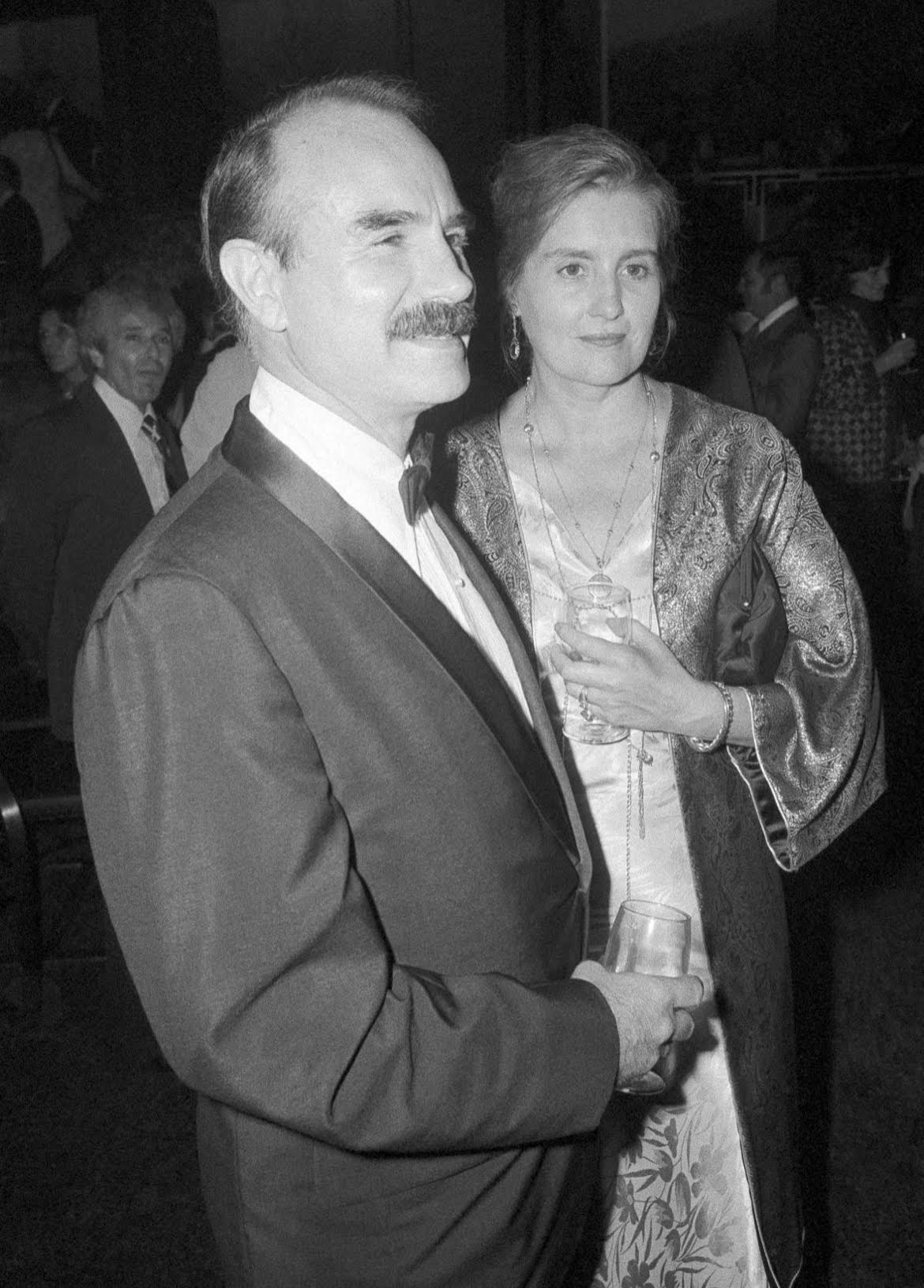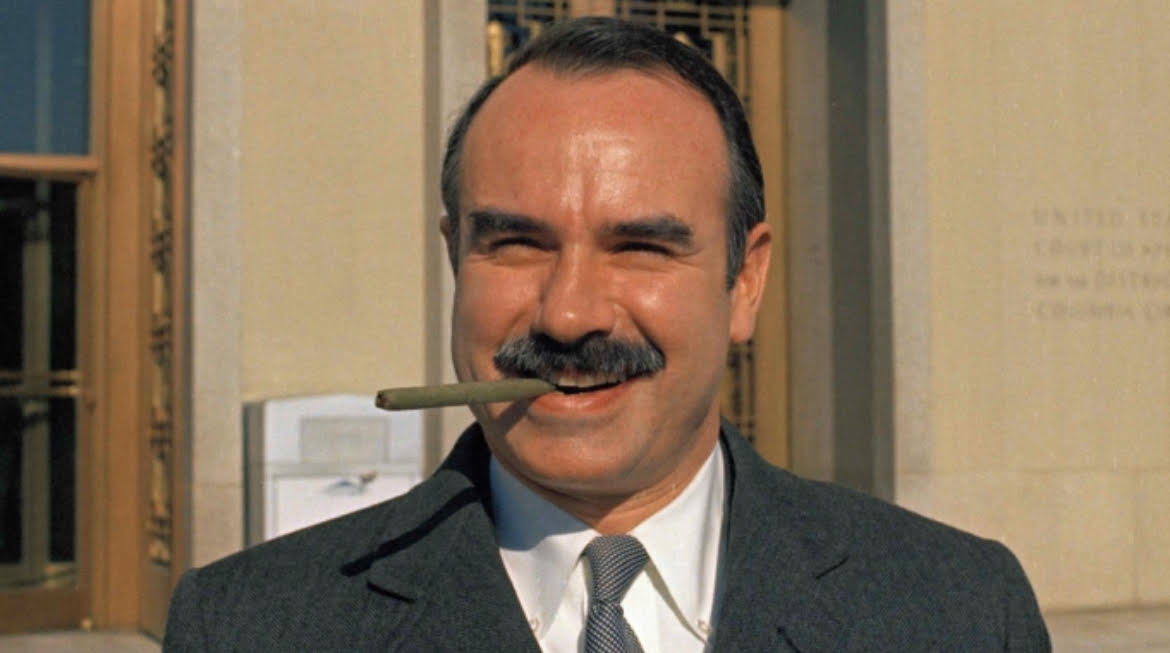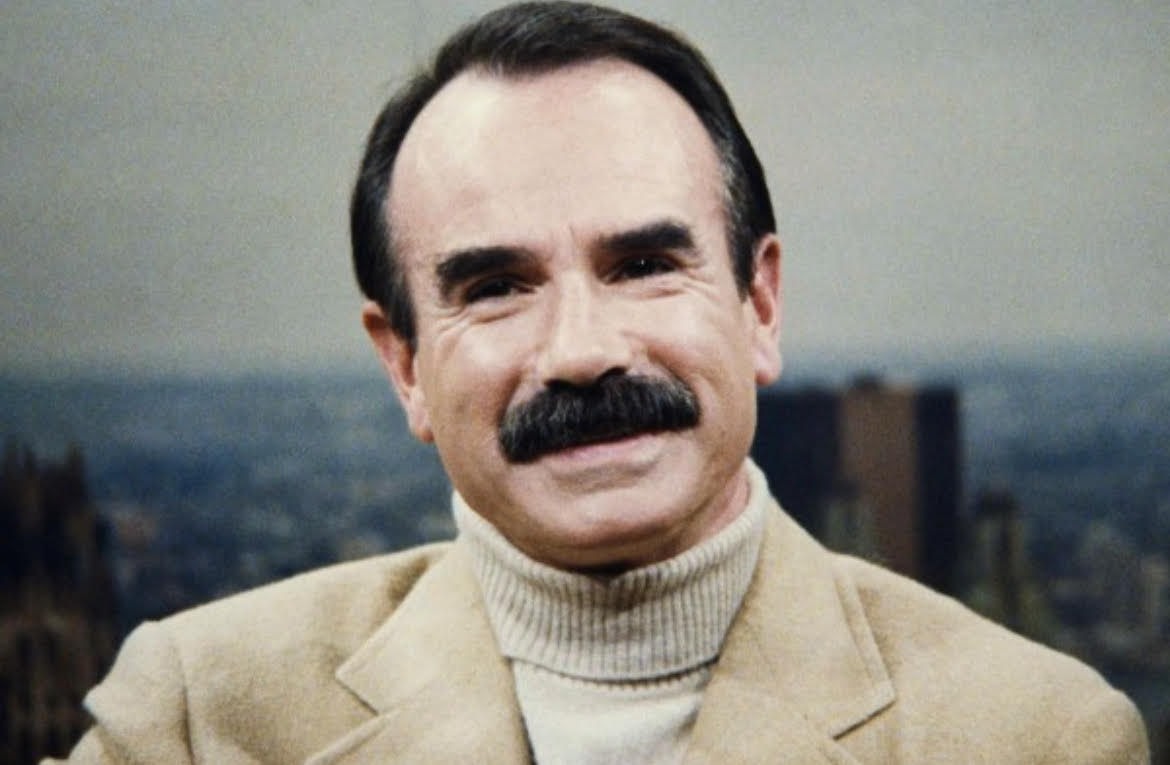
I see HBO has a new series about G. Gordon Liddy and the Watergate fiasco.
Liddy interviewed me 2-3 times on his nationally syndicated radio show. On the first occasion, I expected a crazy man. That was his reputation. But I was in for a surprise.
Liddy was highly intelligent and superbly educated. There was hardly a subject—history, philosophy, art, literature, law—in which he did not command greater knowledge than you.
Branded a kind of Dr. Strangelove in the wake of Watergate—this fiction was primarily the creation of John Dean’s self-justification “Blind Ambition”—Liddy decided that if the media wouldn’t let him overcome it, he would lean-in to it and profit from it. And profit he did, playing villains on TV shows like “Miami Vice” and “MacGuyver,” roles he relished.

Self-deprecating and animated by a good sense of humor, Liddy feigned annoyance at every scandal having the suffix “-gate” added to it: “Chinagate,” “Strippergate,” “Deflategate,” etc. Watergate, he would invariably say, was his own personal scandal and its place in history should not be diminished by lesser scandals.
Liddy made frequent (and flattering) references to his wife. She was a kind of Mrs. Colombo figure, seldom seen or heard, but whom you knew must be patient, sharp-witted, and a force of nature. He always portrayed her as not only better than himself in every way, but better than everyone else in every way, too. It’s the rare man who will do that and carry it off as sincere. Liddy did.

He believed—early and often—that the Clintons were deeply corrupt. He was less troubled by oral sex in the Oval Office than by his deep-seated conviction that they were anti-American political whores who would do anything for power. Liddy could forgive scandal. He’d had his own, after all. But hatred for America was altogether different. He thought Bill Clinton’s election as President in 1992 signaled a seismic shift in what defined America.

He was not a man to forget a kindness. Rush Limbaugh had given him his start in radio (much as he launched mine as a writer) and he never forgot it. He always spoke of him with warmth and gratitude. People who have been crucified publicly are often bitter. Sometimes justifiably so. Liddy wasn’t. He was surprisingly good-natured and thoughtful. After my first appearance on his show, he had the producer tell me (while he was still on-air) that he had enjoyed the conversation and would I join him again? He meant it. And I did join him again.
The G. Gordon Liddy Show was a thrill ride. He liked to provoke feminists with his “Stacked and Packed” calendar featuring scantily clad women with next level firearms. But he was the very model of gentlemanly conduct with women on his show.

Women in trouble saw him as a source of sound avuncular counsel. And he usually was. His legal knowledge was impressive, and he patiently directed those in legal trouble to where they needed to go. But his advice could also be jarring. I recall a conversation that went something like this:
“I’m being stalked. A man peeps in my windows at night. I’m terrified.”
“Have you reported this to your local police department?”

“Yes.”
“And?”
“They say they can’t issue a restraining order without knowing his identity, and I don’t know his identity. They’ve done nothing.”
“Anna, here’s what you’re going to do. You live in the DC area, so call my friend Phil at ACME gun range. He’ll help you to choose and then properly use a firearm. In the meantime, do not stay at home alone. Once you’re trained, Anna, and this guy shows up, open your door wide and wait. When he appears, shoot him the moment he crosses your threshold. Aim center mass and keep firing. Make sure he’s dead and in your house.” He then explained the legal importance of both. “Do you understand, Anna?”
This was riveting radio!

But Liddy’s failing as a talk show host, if he may be said to have had one, was his bottomless reservoir of patience with people in distress. In radio, especially call-in shows, the idea is to move fast and cover a lot of ground. Not him with someone in need. That said, he was a ruthless (and hilarious) grammarian. He loved correcting journalistic errors in newspapers, especially The New York Times.

The last time I did an interview with him he was a widower and he wasn’t his usual jovial self. The loss of his wife of 53 years had hobbled him. The wit was missing, his spirit gone. But even an elderly, wounded “G-Man” was sharp.
I have little doubt the HBO film will portray Liddy as John Dean did and subsequent characterizations copied: the insane, absurd, bungling tough guy. The character has become a cliché, a boring movie trope.
My own recollections tell a different tale. Even Dean, who isn’t half as smart as Liddy was, portrays him as extremely bright. “A quick study,” if memory serves. I’ll go further: Liddy was an intellectual who possessed a sawed-off shotgun for a mind. Rather than flaunt it, he preferred to disguise his intelligence behind a push broom mustache and a thinly veiled contempt for pretentious Washington elitists.

But when he chose to reveal it, it flashed and blew holes in spurious arguments and nonsense rhetoric. And somehow it surprised you even though you knew he was extremely smart.
That’s because the exterior Liddy belied the Liddy within. It’s like it was a carefully cultivated disguise. And with him, it probably was. More than once I wondered how a man who had lived such a full life found the time to not only read so many books, but to know them intimately, remember them, and quote them easily.

If you mentioned a Shakespearean play or one of Faulkner’s novels or the philosophy of Aquinas, he simply couldn’t suppress his delight that he finally had someone with whom he could discuss them. If spies are tripped-up by the unexpected use of their real names, Liddy’s disguise was exposed with the mention of a subject that excited the hamsters running on the wheel of his nonstop brain.
In my extensive experience with the intellectual class, you discover that many simply possess impressive degrees, while others, though fewer in number, possess impressive educations. There’s a difference. Liddy was of the latter.
G. Gordon Liddy was a man of contradictions. An enigma. But humane, endlessly interesting, and a proud American. If you can find one of his old shows, listen. He will entertain and educate you. But I recommend you leave the calendar in the garage.

WAIT! Do you appreciate the content of this website? We are a nonprofit. That means that our work is made possible and our staff is paid by your contributions. We ask you to consider supporting this important work in an ongoing basis or, if you prefer, perhaps you will drop a few buck in our “tip jar.” All contributions are tax-deductible.


